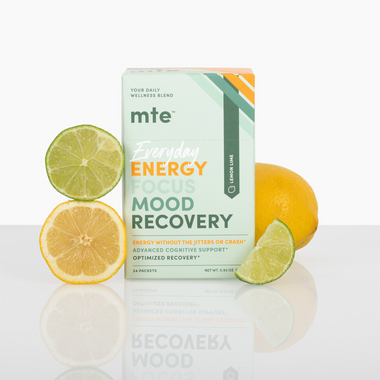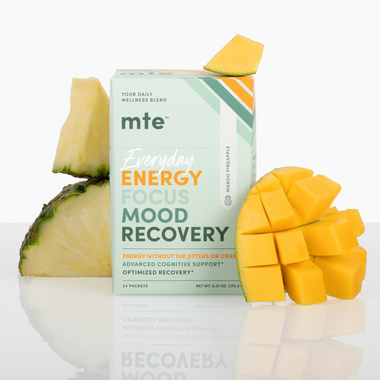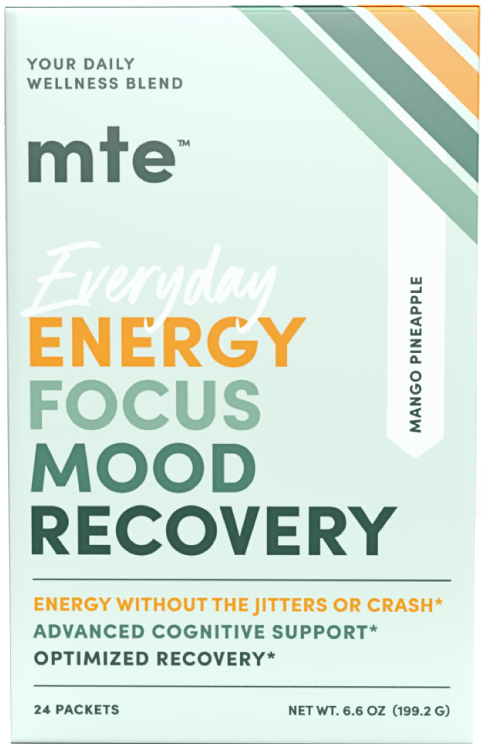
IBS Coffee Alternatives: How to Get Energy When You Have Irritable Bowel Syndrome?
Feeling tired is a common struggle for people with irritable bowel syndrome (IBS). That’s because disrupted sleep patterns, stress, and dietary restrictions, which are common in individuals with IBS, contribute to feelings of low energy.
Most of us instinctively reach for a cup of coffee to kickstart the day or overcome fatigue. However, people with IBS can’t do that because this caffeinated beverage only makes their symptoms worse.
Luckily, certain IBS coffee alternatives can provide the energy boost you need without causing discomfort.
In this article, we want to explore why IBS and coffee don’t mix well, how IBS coffee substitutes can help, and share tips for finding energy without sacrificing digestive well-being.
What Is Irritable Bowel Syndrome?
IBS is a chronic gastrointestinal condition that affects the large intestine. Current research estimates that 6.1% of the global population suffers from IBS, which is over 20 million people in the US.
Although the exact cause of IBS is unknown, certain factors play a role in developing this condition. That includes:
- Intestine muscle contractions
- Nervous system issues
- Severe infections
- Early life stress
- Gut microbiota changes
IBS is characterized by a cluster of challenges that significantly impact daily life:
- Abdominal discomfort: Persistent pain or discomfort in the abdomen is frequent in people with IBS. The nature and intensity of the pain can vary.
- Bloating: Many individuals with IBS experience bloating, a feeling of abdominal fullness, and visible distension.
- Disrupted bowel habits: IBS often manifests as changes in bowel habits, including diarrhea, constipation, or a combination of both. The inconsistency can be frustrating and unpredictable.
- Dietary restrictions: People with IBS often struggle with identifying and avoiding trigger foods. High-fat, spicy, or gas-producing foods can worsen the symptoms.
- Inability to drink coffee: A unique challenge many individuals with IBS face is the inability to enjoy a comforting cup of coffee. The acidity and stimulant effects of coffee can intensify digestive discomfort.
The Relationship Between Coffee and IBS
Caffeine is a central nervous system stimulant found in the leaves and fruits of certain plants, including coffee beans. Although it is celebrated for its ability to provide a quick energy boost, this compound can be a double-edged sword for people with IBS.
It’s important to note that the exact mechanisms can vary between individuals, and not everyone with IBS will have the same response to caffeine. Some may tolerate small amounts, while others may find it triggers or worsens their symptoms. Additionally, individual sensitivities to caffeine and other compounds in coffee can play a role in how it affects IBS symptoms.
Here are the reasons why people with IBS struggle after drinking coffee:
Muscle Contractions
Caffeine can cause involuntary muscle contractions, including those in the gastrointestinal tract, increasing movements of the intestines. For individuals with IBS, who may already experience abnormal bowel movements, the additional stimulation from caffeine can aggravate symptoms such as abdominal pain, cramping, and diarrhea.
Acidity
Coffee is acidic, and caffeine also stimulates gastric acid secretion in the stomach. This increases acidity, which contributes to feelings of heartburn, especially in individuals with IBS who may be more susceptible to acid-related issues. The increased acidity can also irritate the lining of the digestive tract, potentially leading to discomfort and worsening of existing symptoms.
Diarrhea/Constipation
Caffeine is known to have diuretic effects, which can increase urine production and contribute to dehydration. Dehydration affects the balance of fluids in the digestive system, potentially leading to changes in stool consistency and intensifying problems like diarrhea or constipation in individuals with IBS.
Stress/Overstimulation
Caffeine overconsumption can increase the heart rate and make people anxious and jittery. Stress and anxiety are known triggers for IBS symptoms, and the stimulating effects of caffeine don’t help. As a result, increased stress levels can trigger the IBS symptoms, which in turn make you more nervous and reactive, leading to a vicious cycle.
Can IBS Coffee Alternatives Help?
People with IBS often struggle to keep their energy and focus levels high while trying to keep up with daily tasks. Sure, they can drink coffee, but it’s a double-edged sword that can cause stomach discomfort and diarrhea instead of energy and focus.
Luckily, several IBS coffee alternatives can help:
- Herbal teas: Peppermint or ginger teas are soothing coffee substitutes that don’t cause the same adverse effects.
- Low-acid coffee substitutes: Specially crafted coffee substitutes can provide a familiar flavor without gastrointestinal side effects.
- Warm water with lemon: A gentle yet invigorating option, warm water with lemon offers a refreshing way to kickstart the day.
- Golden milk (turmeric latte): The anti-inflammatory properties of turmeric make golden milk a potential energy-boosting alternative for those with IBS.
- MTE (More Than Energy): This healthy energy drink powder is the perfect IBS coffee alternative because it is gentle and effective.
Meet MTE: The Perfect IBS Coffee Substitute
MTE is a healthy daily energy and wellness supplement that uses a formulation of adaptogens, nootropics, and superfoods to recalibrate the body and mind for sustained energy and well-being.
MTE is an excellent option for people with IBS because it doesn’t rely on excessive caffeine or sugar for energy. As a result, MTE doesn’t cause false stress responses or nervous system overexcitement, managing to avoid these common IBS triggers.
Instead, this wellness powder encourages the body to produce energy naturally, supporting long-lasting focus, energy, and an overall sense of well-being.
In addition, MTE helps to promote positive mood, support immunity, build stress resilience, and improve rest and recovery at night. This is important for people with IBS who may struggle with stress, chronic unease and poor sleep quality.
How to Avoid Coffee and Get Energy When You Have IBS
For those struggling with IBS, the road to sustained energy can be challenging, especially considering that caffeine is an addictive substance that fosters physical and mental dependence. So first thing's first, you must slowly reduce your caffeine intake.
Aim to gradually decrease the number of cups each week, allowing your body to adjust without triggering withdrawal symptoms. Consider an IBS coffee substitute like MTE for a gentle transition.
In addition, you can consider specific lifestyle changes and strategies that help reduce the effects of quitting caffeine and provide more energy. That includes:
- Being mindful about what you eat: Prioritize a diet rich in whole grains, lean proteins, fruits, and vegetables. These nutrient-dense choices provide a sustained release of energy throughout the day. Practice mindful eating habits, focusing on smaller, more frequent meals to prevent energy dips and IBS triggers.
- Exercising regularly: Engage in low-impact exercises like walking, yoga, or swimming to promote physical well-being without triggering IBS symptoms. Regular physical activity can improve digestion, reduce stress, and support overall energy levels.
- Managing stress: Incorporate mindfulness and meditation into daily routines to alleviate stress. Simple breathing exercises, such as diaphragmatic breathing, can promote relaxation and mitigate the impact of chronic stress on the digestive system.
- Staying hydrated: Ensure adequate hydration throughout the day. Water is crucial in maintaining energy levels, supporting digestion, and preventing dehydration-related fatigue.
MTE: Better Than Coffee's "Crappy" Energy
For many people struggling to get energy with IBS, coffee is not an option because it leads to pain, diarrhea and other gastrointestinal issues. To support energy levels, individuals with IBS need to find ways to combat stress, embrace a balanced diet, exercise regularly, and hydrate. However, that’s often not enough.
You can also try an IBS coffee alternative like MTE, designed to support sustained energy and well-being. MTE doesn’t rely on caffeine and instead uses the power of nootropics, adaptogens, and superfoods to kickstart your body’s internal energy production without triggering IBS symptoms.
Order MTE and discover that consistent energy is possible even if you have IBS.






